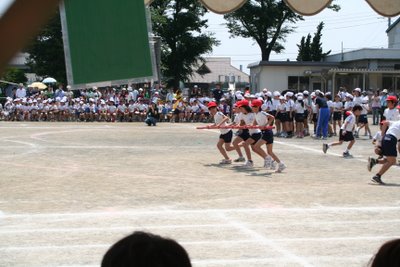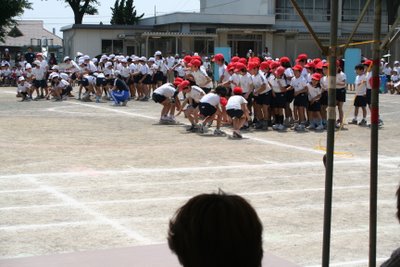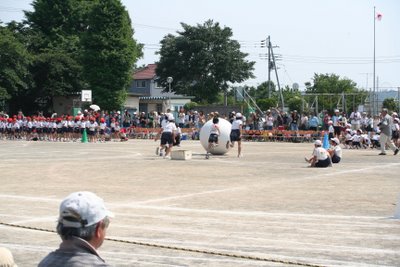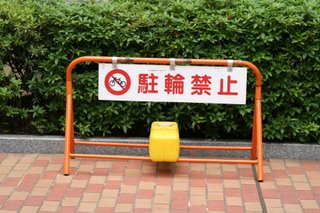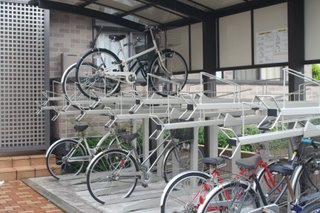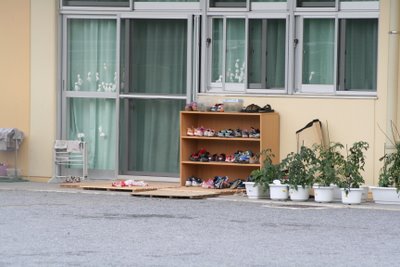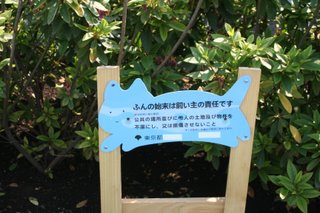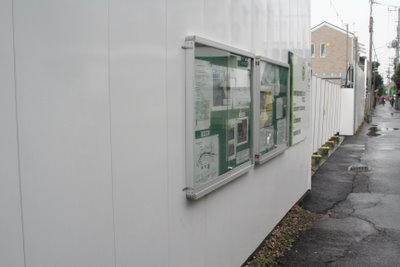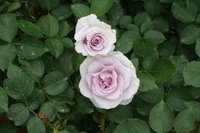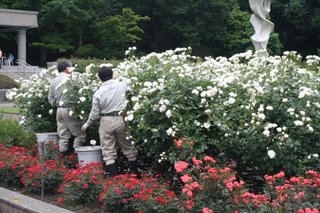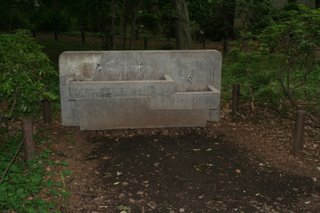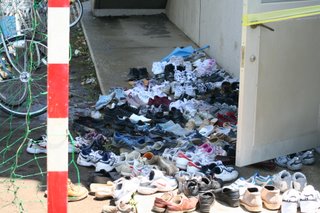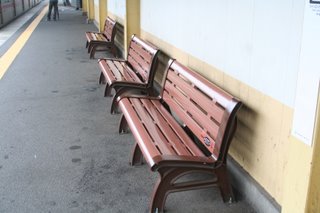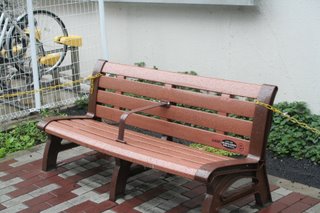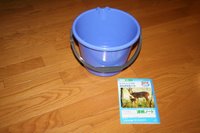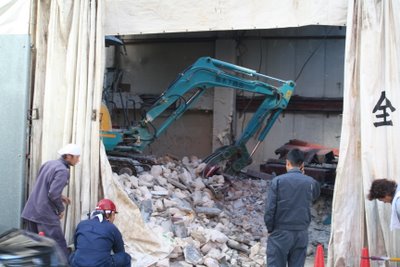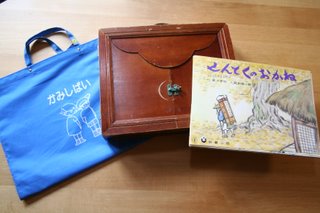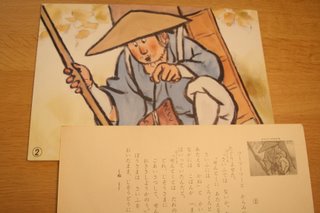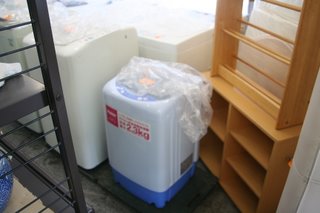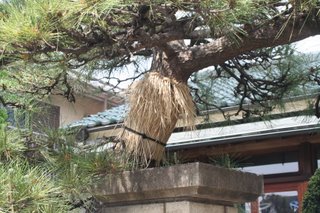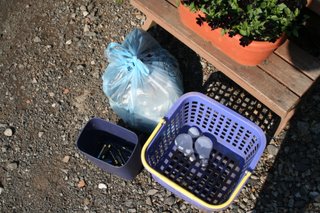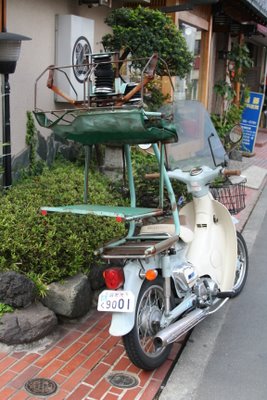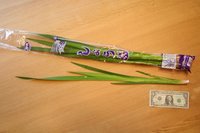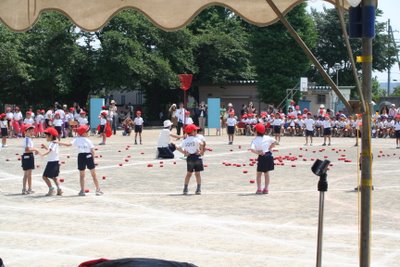
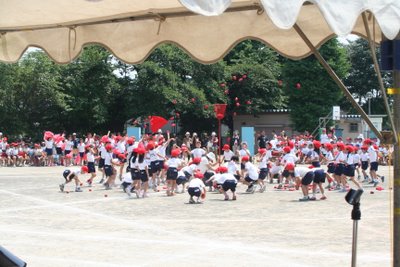
Sports Day was postponed from last Saturday to today. Unfortunately, it is Wednesday so many fathers and older siblings couldn't attend. At Little Brother's elementary school, there is a white team and a red team. They wear their usual school P.E. uniform. The hat they always wear has a red side and a white side. When they form teams they just flip the hat to their team's color.
Both teams for Sports Day have members from all grades. No awards or ribbons are given to individual students. Teams get points when they win an event. The points are displayed on the side of the school. Large paper cards are put manually into slots.
There is an opening ceremony. A small student band leads everyone onto the field. (They usually play "Life Goes On" by the Beatles.) The principal makes a speech. A small group of "cheerleaders" lead their teams in chants. They do warm-up exercises to music and then "march" back to their seats. (They had brought their chairs from the classroom earlier.)
Here are two pictures of an event for first graders. The red team stands in a circle at one end of the playground and the white team stands in a circle at the other end. They do a little dance with music. When the music stops they run to the center to pick up bean bags to toss into the basket. Afterwards, the whole crowd counts aloud as a teacher tosses each bag into the air. The team who has the most bags wins the points for the event.
